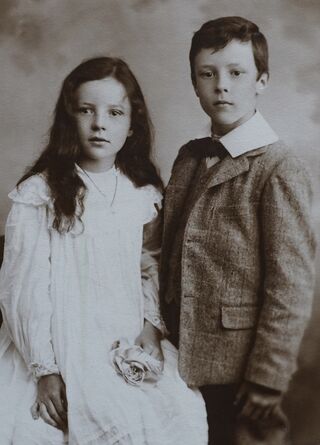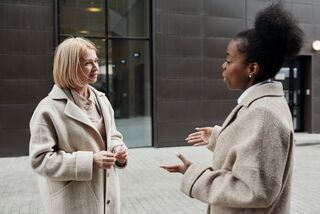Memory
8 Lessons of Memory for This Season of Remembering
Knowing how memory behaves informs our remembrances with others.
Posted December 22, 2021 Reviewed by Jessica Schrader
Key points
- Identifying predictable mistakes of memory can be helpful in resolving disagreements about what people remember.
- We often emphasize the mistakes of memory and overlook the many ways that memory is reliable and accurate.
- Forgetting is necessary for healthy functioning in a complex world and for remembering what’s important.
When we talk to friends and family about our common past, we sometimes discover discrepancies in memory. But that doesn’t mean memory is unreliable. These discrepancies mainly illustrate differences in what each of us thinks is important. And they also reveal the particular kinds of mistakes that memory can make.
What should we know about memory that can inform our remembrances and guide our interactions when remembering with others?
1. Memory Disagreements
One rule of remembering: Do not compare or evaluate your own memory based on what someone else thinks is important to remember. We each selectively attend to different aspects of events and we each have different influences on our specific memories.

Disagreements with family and friends about memory for specific events are prominent for a few reasons. To begin, we often focus on the disagreements in memory rather than agreements—they’re more interesting to recall and talk about. And with these memories, we attend to the particular discrepancies and not what the memories have in common. We amplify the typical, predictable mistakes of memory and deemphasize its accuracies.
Chances are only part of the memories are in disagreement, such as the presence or absence of a particular person, the immediate context, what exactly was said or done. Knowing memory's shortcomings and strengths can explain these discrepancies.
2. Mistakes of Memory
Many of our memory mistakes result from composite images. Specific memories from different time periods are overlaid on one another, as in superimposed imagery. People can be inserted into scenes in which they were not present. The locations and events are remembered accurately, but the people are misplaced. In a court of law, this is can be a serious mistake. In families and among friends, less so.
General knowledge can create mistakes within a specific memory by intruding into that memory. Suppose we usually go hiking with a cousin, but one time we went with a neighbor. When recalling the day we went hiking with our neighbor, the accumulated memories of hiking with our cousin might intrude into that single instance, and we might remember hiking with our cousin instead.
Personal memories are not simply made up or fabricated. Mistakes result from blending memories whose components accurately represent our original experiences. Even mistaken memories represent much of the original events accurately.
3. Misplacing the Original Sources
Some mis-memories of events can be created by photographs or retold family stories that shape the memory. Keeping track of where information comes from is called source monitoring—identifying when memories are based on firsthand direct experience or on second-hand sources. Did we experience our mother taking home a stray dog from the grocery store when we were 4 years old or were we told about it? Once we form an integrated memory, we may lose information about the source of the original memory.
4. Exaggerations

Memories from early childhood are often exaggerated. Events are remembered as taking longer than they actually did. People, objects, and rooms are remembered as larger. Small mishaps may be recalled as catastrophic.
5. Be aware of availability bias
One reason we emphasize the inaccuracy of memory is the availability bias. We use the availability of specific examples in memory to make judgments about these events in general. People who watch a lot of local news, for example, overestimate the level of danger in their community because they can readily think of specific examples of crime from the news.
With memory mistakes and disagreements, we are far more likely to recall examples of flawed memories than examples of accurate memories, so we overestimate the frequency of these inaccuracies. We don't celebrate every time we agree with someone about a detail from the past, but we may clearly note misremembering the name of a colleague at a party. (Ironically, remembering instances of faulty recall is a form of accurate memory.)
6. Some of our seeming forgetfulness can be attributed to habit
When visiting others or hosting visitors, our habits are altered, and forgetting becomes more likely. Over time, it’s not so much that memory gets weaker, but that habits grow stronger. If we rarely turn on our outdoor lights, for example, but we do so because friends are stopping by, we will probably forget to turn them off. Memory hands off some of its duties to habit, so when habit is upended, memory may not step in.
7. We do remember accurately

When we remember accurately, we should pause and acknowledge our successful remembering—so we can maintain a balanced assessment of our memory system. Distinct examples of memory mistakes are more newsworthy to us than examples of accuracy, but every so often we should acknowledge our remembering. In fact, one reason mistakes are remembered is that they are the exception against a backdrop of appropriate remembering. Noting our successful rememberings can nourish our memory esteem.
8. Forgetting
Of the various ways that memory shows its imperfections, the most prevalent by far is forgetting. We forget much of what we watch, read, think, and encounter directly in the world.
Such forgetting is necessary for healthy functioning in a blooming, buzzing, vibrant, occasionally disturbing world, laden with information. Do we really want to remember all the faces we see at the airport? Do we want to remember where we parked our car yesterday? There is no reason to recall many of these relentless details.

In our daily lives, we focus on understanding the world, not on remembering it. Most of the time, we live our lives moving forward—comprehending, acting, and reacting. We don’t set out with the goal of remembering, so it shouldn't be surprising that we don’t remember many of the details.
Moreover, forgetting makes experiential learning possible. Such learning proceeds when specific memories of similar events coalesce into general knowledge. If we repeatedly go out to Thai restaurants, for example, we will acquire a fuller understanding of Thai cuisine—even as we forget many of the individual meals. To gain general knowledge, we integrate information from similar events, forgetting particulars while becoming more knowledgeable about that type of event. Viewed this way, forgetting is not a breakdown of the memory system but a necessary function of learning.
Helpful questions
The next time we encounter different memories of the same events, we need to ask: In what ways are the memories different? The differences and inaccuracies can often be specified and explained. We should also ask: In what ways are the memories the same? Chances are, there is a lot more agreement than disagreement.




